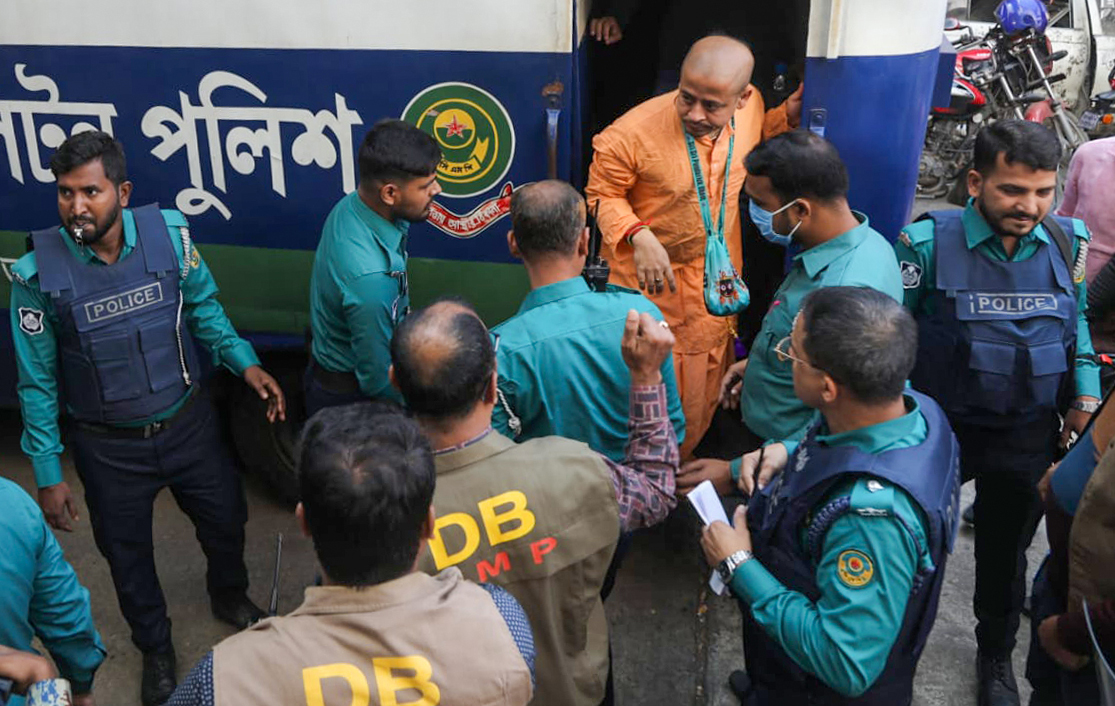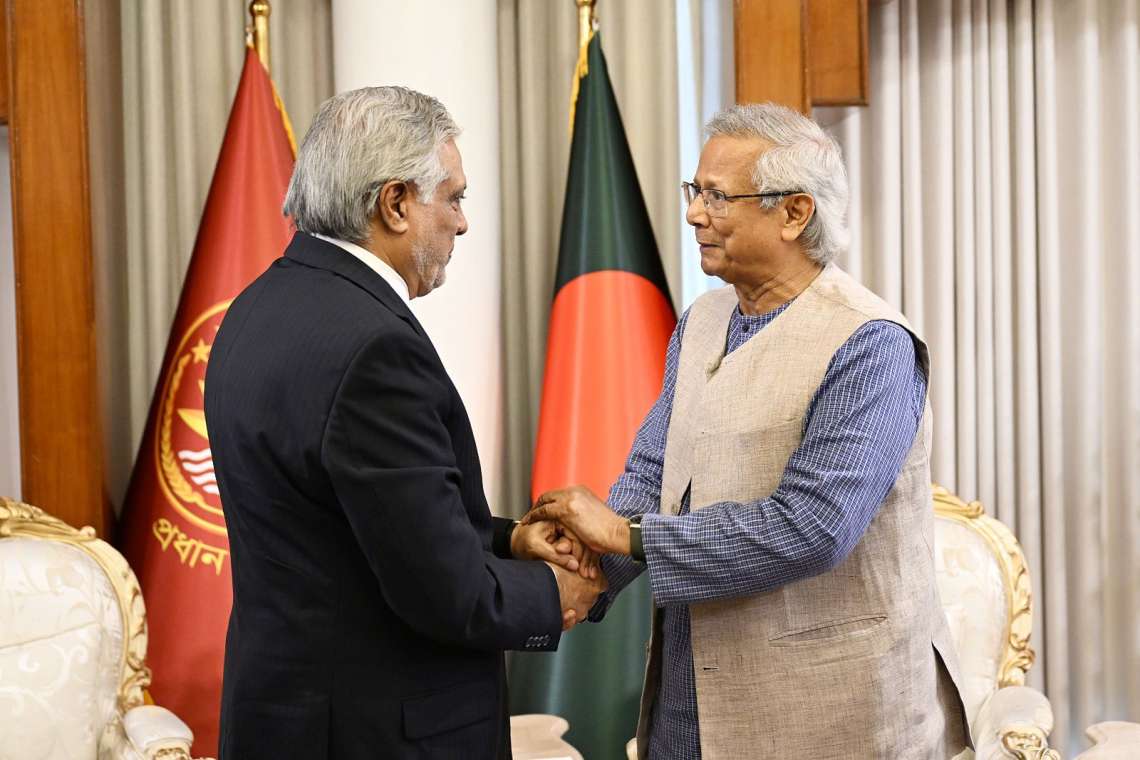In a dramatic turn, the Bangladesh High Court granted bail to Chinmoy Das in a sedition case, only for the government to swiftly appeal, leading the Supreme Court to stay the bail later in the evening.
In a controversial late-evening ruling on Wednesday, the Appellate Division of the Bangladesh Supreme Court stayed the High Court’s decision to grant bail to Chinmoy Krishna Das, also known as Chandan Kumar Dhar—a prominent Hindu rights activist and former ISKCON monk—who has been jailed since November last year in a sedition case. The stay order, issued by Justice Rezaul Haque, will remain in effect until a leave-to-appeal petition is filed and the full verdict is released.
Das, who leads the Pundarik Dham and serves as the spokesperson for the Bangladesh Sammilito Sanatani Jagaran Jote, was arrested on November 25, 2024, over allegations of disrespecting the national flag during a rally in Chattogram. The High Court’s decision earlier in the day to grant him bail had been seen as a rare reprieve for the beleaguered Hindu community in Bangladesh. However, the swift appeal by the state and the Supreme Court’s stay have fuelled concerns over judicial independence and minority rights under the interim government led by Muhammad Yunus.
Das’s arrest drew widespread condemnation from religious rights organisations and minority groups across South Asia. Many saw it as part of a broader pattern of repression that has taken hold since Prime Minister Sheikh Hasina was ousted in August 2024 amid widespread political violence. Since the formation of the caretaker government, there has been a marked increase in attacks on Hindus and opposition figures, drawing criticism from India and the international human rights community.
In the months following Hasina’s removal, violence against Bangladesh’s Hindu community has surged. On April 18, Bhabesh Chandra Roy, a leading Hindu community figure associated with the Bangladesh Puja Udjapan Committee, was abducted and beaten to death by four unidentified individuals. His death has only intensified anger over what critics call a “climate of impunity” under the Yunus-led interim setup.
India has repeatedly condemned what it terms the “systematic persecution of Hindu minorities” in Bangladesh and has reportedly conveyed its concerns through diplomatic channels. New Delhi has also raised questions about the legitimacy of the interim administration, which it sees as lacking a constitutional mandate.
Meanwhile, the interim government’s crackdown has widened beyond minority leaders to target the family of former Prime Minister Sheikh Hasina, in what analysts describe as an unprecedented campaign of political revenge. On Wednesday, a Dhaka court ordered the seizure of multiple properties owned by five members of Hasina’s family—including her sister Sheikh Rehana, son Sajeeb Wazed Joy, and daughter Saima Wazed Putul—following a petition by the Anti-Corruption Commission (ACC).
Among the seized assets were a Tk4.98 crore house in Baridhara owned by Putul and large plots of land in Khulna and Gopalganj linked to other family members. This comes just days after the same court ordered the seizure of Sudha Sadan, the family’s Dhanmondi residence, and the freezing of more than 120 bank accounts held by Hasina, her children, and close relatives. On March 4, the court had frozen 14 accounts linked to Putul’s organisation, the Shuchona Foundation.
The targeting of Hasina’s family appears to be part of a broader campaign to dismantle the Awami League’s power base and erase its political legacy. Many of the allegations appear to rest on investigations spearheaded by the ACC under the direct oversight of the interim government. Notably, British MP Tulip Rizwana Siddiq, Hasina’s niece, stepped down from her post in January after being named in one of the ACC’s corruption probes.
Independent analysts and Awami League supporters alike argue that these actions are politically motivated. “The Yunus administration is implementing every design to malign Hasina and her family,” said a senior lawyer familiar with the legal proceedings. “This is not an anti-corruption drive—it’s a political purge.”
Adding to the intrigue, Muhammad Yunus himself remains mired in controversy. In January, he was indicted along with 13 others for allegedly embezzling over USD 2 million from Grameen Telecom, one of several firms he founded. The Anti-Corruption Agency has charged him with misappropriating funds meant for workers’ welfare—ironically, even as he leads a caretaker administration that claims to champion transparency and reform.
Hasina, who remains a vocal critic of the interim government, has called Yunus an “usurper” who assumed power through foreign-backed manipulation and misinformation. She has accused his administration of encouraging mobs to loot her family’s home in Gulshan—an incident that, notably, has not yet resulted in any police investigation.
As tensions continue to rise, the reversal of Chinmoy Das’s bail appears to underscore a broader pattern of state-sponsored suppression, with Bangladesh’s judiciary caught in the crosshairs of a rapidly escalating political crisis. Whether the courts will eventually stand up to the pressures of a hyper-politicised environment remains to be seen—but for now, both justice and minority rights in Bangladesh appear to hang in the balance.














